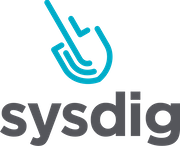Introduction to Vulnerability Management Software
In today's digital age, businesses are more reliant on technology than ever before. While technology brings many benefits, it also opens up new risks and vulnerabilities. Cybersecurity threats such as ransomware, phishing attacks, and data breaches can cause significant damage to a business's reputation, finances, and operations. As such, it's critical that businesses take a proactive approach to managing their security risks. Vulnerability management software is an essential tool in a business's security arsenal, providing a means to identify, prioritize, and remediate vulnerabilities before they can be exploited. With so many vendors offering vulnerability management solutions, selecting the right software can be a daunting task. In this buyer's guide, we'll explore the key features and considerations to help you make an informed decision and choose a product that meets your business's unique needs.
What is Vulnerability Management Software
Vulnerability Management Software is a powerful tool used to identify, assess, and remediate security vulnerabilities within an organization's IT infrastructure. It helps businesses mitigate the risk of cyber threats by discovering and prioritizing vulnerabilities, providing guidance on remediation strategies, and tracking progress towards mitigating these risks. Common use cases of Vulnerability Management Software include: - Asset Discovery: This feature helps businesses keep track of all their assets, including software and hardware, and identify any vulnerabilities that need attention. - Vulnerability Scanning: This feature scans the organization's network and identifies any vulnerabilities within the system or network. - Risk Assessment: This feature assesses the potential impact of the vulnerability and prioritizes risk based on the severity and the potential impact it poses to the organization. - Patch Management: This feature provides notifications and guidance on necessary patches and the updates that have been released to fix the vulnerabilities. - Compliance Monitoring: This feature notifies companies of any compliance requirements that need to be met and provides guidance on how to comply. Vulnerability Management Software is used by companies in a wide range of industries, including but not limited to finance, healthcare, government, and e-commerce. Any organization that processes, stores, or handles sensitive data should consider adopting vulnerability management software to detect and remediate potential threats before they become security breaches. Overall, Vulnerability Management Software is a vital tool for businesses looking to safeguard their IT infrastructure. By providing real-time insights into potential vulnerabilities, this software can help companies protect sensitive data, meet compliance requirements, and avoid the high costs associated with data breaches.
Benefits of Vulnerability Management Software
Vulnerability management software is a crucial technology for modern businesses of all sizes. Whether you run a small business or a large enterprise, protecting your digital assets against potential threats is paramount in today’s cybersecurity landscape. Vulnerability management software helps businesses proactively identify, assess, and remediate potential vulnerabilities within their network, ultimately reducing the risk of a successful cyber attack. Here are the key benefits of using vulnerability management software for your business: - Improved security: Identifying and patching vulnerabilities before they can be exploited is essential for maintaining a secure IT environment. Vulnerability management software provides businesses with real-time insight into their security posture, allowing them to take a proactive approach to cyber threats and reduce the risk of a security breach. - Risk mitigation: By continuously monitoring and assessing potential vulnerabilities, businesses can identify areas of high risk within their network and prioritize remediation efforts accordingly. This helps to reduce the overall risk of a data breach and ensures that critical systems remain secure. - Increased efficiency: Vulnerability management software automates many of the manual processes associated with identifying and remediating vulnerabilities. This saves businesses time and resources and allows them to focus on other critical areas of their IT environment. - Compliance: Many regulatory frameworks and industry standards require businesses to have adequate vulnerability management processes in place. Vulnerability management software can help businesses to achieve compliance with these requirements and avoid costly penalties. - Cost savings: The cost of a data breach can be significant, including legal fees, loss of revenue, and damage to the business's reputation. Vulnerability management software can help businesses to avoid these costs by proactively identifying and addressing potential vulnerabilities before they can be exploited. Overall, vulnerability management software is a critical tool for businesses looking to maintain a secure digital environment. By providing real-time visibility, automating manual processes, and prioritizing remediation efforts, vulnerability management software helps businesses to reduce the risk of a successful cyber attack and protect their most valuable digital assets.
Features of Vulnerability Management Software
As technology advances, so does the number of vulnerabilities that can affect a business's security. This is where vulnerability management software comes in. But what exactly are the features that make this software such a valuable tool? Here are ten common features you should look for when choosing the right vulnerability management software for your business: 1. Asset Discovery - This feature aids in identifying, classifying, and cataloging devices that require vulnerability management. 2. Vulnerability Scanning - This tool helps assess your IT infrastructure to identify vulnerabilities and exposures. 3. Risk Prioritization - This feature allows for the identification and ranking of assets needing remediation, reducing the time needed to deal with vulnerabilities. 4. Remediation Planning - This feature offers guidance to IT teams on how to prioritize and fix vulnerabilities, allowing for a comprehensive approach to vulnerability management. 5. Virtual Patching - This tool innovatively protects systems from vulnerabilities with technology speedily designed to block attacks without changing an organization's code, without needing a reboot. 6. Compliance Reporting - This enables businesses to report compliance with rules because vulnerability management solutions must support businesses in achieving regulatory compliance. 7. Asset Management - This function provides the administering of a comprehensive, organized inventory of all company IT assets and device systems. 8. Customizable Reporting - This feature allows businesses to create reports tailored to specific requirements, including deadlines, metrics, and summaries of the organization’s vulnerability management program. 9. Centralized Management - This feature helps achieve agile and streamlined management of vulnerability scanning and remediation while still automating threat intelligence and enabling collaboration between teams. 10. Integration with other security tools - The software must also integrate with other security tools such as SIEM tools, firewalls, and intrusion detection systems. In conclusion, vulnerability management software is an essential aspect of any business's security posture. With these features, you can be sure to select a vulnerability management solution that ideally meets your organization's security needs.
Considerations of Vulnerability Management Software
In today’s environment, businesses face an ever-increasing number of cybersecurity threats. Vulnerability Management Software (VMS) is an essential tool that can help organizations detect and manage vulnerabilities, implement patches, and reduce the risk of attacks. However, not all VMS solutions are created equal. When considering the purchase of a VMS, businesses should pay attention to several factors to ensure they select the right solution for their needs. 1. Scalability: An organization's cybersecurity needs may grow as the business expands; as such, VMS solutions that can scale accordingly are desirable. 2. Customization: Every business is unique, and their VMS needs may vary depending on their industry. Customizable VMS solutions that can integrate with different systems and adjust to specific organizational requirements are the ideal choice for businesses. 3. Ease of use: With cybersecurity threats increasing in complexity and frequency, it's critical that VMS solutions are easy to use. It's essential to assess the software's usability before making a purchase to avoid issues with integration and inexperience. 4. Performance and speed: In cybersecurity, every second counts. Thus, prompt and reliable software solutions are crucial. Look for VMS that can quickly scan for and identify vulnerabilities and provide prompt notifications. 5. Reporting: Reporting and analysis are crucial components of VMS. Organizations should choose software that can provide detailed reporting, track vulnerability history, and identify trends. 6. Cost: Cost is, of course, a fundamental factor to consider when installing any software. VMS varies widely in price, and businesses should consider their budget alongside their cybersecurity requirements. In conclusion, selecting the right VMS solution is vital to improve an organization's security posture and mitigate the risk of breaches. The factors outlined above will help businesses find the best products to suit their needs. A thorough and considered evaluation is essential, and a VMS that meets an organization's needs today and tomorrow is crucial.
Software Trends for Vulnerability Management Software
As we approach the year 2023, it's clear that the world of vulnerability management is evolving at an unprecedented pace. As organizations grapple with increasingly sophisticated security threats, the need for more advanced and effective vulnerability management software has become more pressing than ever before. So, what can we expect to see in the world of vulnerability management software in the coming years? Here are some of the biggest trends that are set to shape the industry: 1. Greater integration - In order to keep up with the evolving threat landscape, vulnerability management software is set to become increasingly integrated with other security technologies such as firewalls, endpoint protection, and SIEM tools. 2. AI-powered automation - As the volume and complexity of security threats continue to grow, vulnerability management software vendors are investing heavily in developing AI-powered automation features that can help organizations stay on top of their security game. 3. Cloud-based solutions - As more and more organizations move their operations to the cloud, it's inevitable that the vulnerability management software market will follow suit. In the coming years, we can expect to see an increasing number of cloud-based vulnerability management solutions hit the market. 4. Focus on DevSecOps - With the rise of the DevSecOps movement, vulnerability management software vendors are starting to pay closer attention to the needs of developers and security teams working in agile and DevOps environments. 5. Better reporting and analytics - To help organizations make informed decisions about their security posture, vulnerability management software vendors are investing in better reporting and analytics capabilities that can provide real-time insights into an organization's security vulnerabilities.







